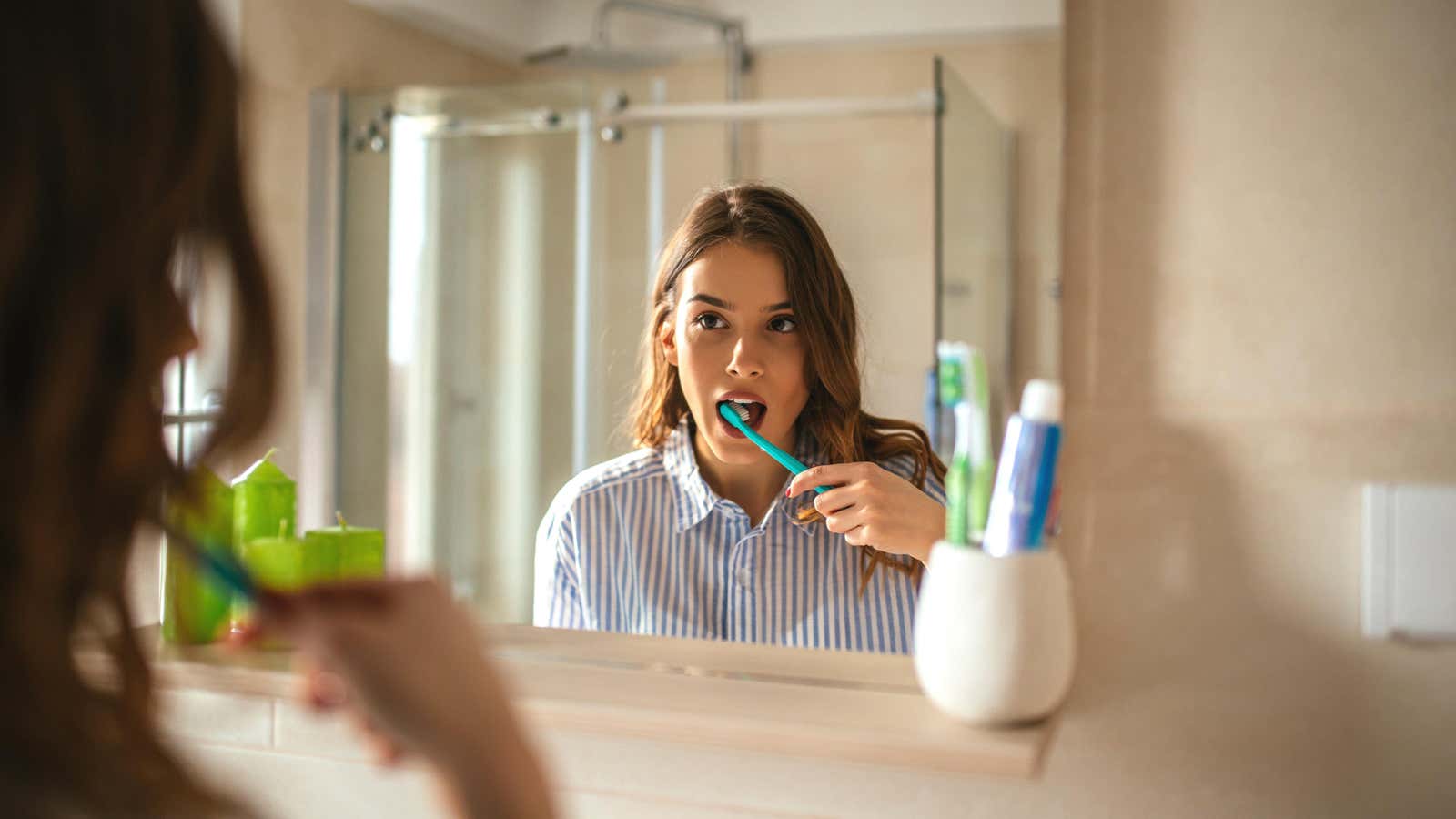Why You Should Stop Rinsing Your Mouth After Brushing Your Teeth

The basic principles of oral hygiene are widely accepted and well known. Brush your teeth twice a day, floss daily, avoid sugary foods and drinks, and don’t rinse your mouth after brushing your teeth?
To be honest, we just heard this for the first time in our long time on this Earth – and we were blown away. Not rinsing out the minty flame of bubbles that just filled your entire mouth, and instead leaving the residue on your teeth, seems … somehow wrong.
But according to the Oral Health Foundation and the National Health Service of the United Kingdom, this is correct. Your teeth are not destined to rot and fall out if you don’t, but there are reasons to stop rinsing your mouth.
Why we should “spit, not rinse”
A 2016 survey by the Oral Health Foundation, an independent UK oral care charity, found that over 62% of respondents rinse their mouth after brushing, but this habit can make us more prone to cavities. The organization’s CEO, Dr. Nigel Carter, called mouthwash after brushing “very bad” because it “washes away the protective fluoride left after brushing.”
Carter noted the paramount importance of fluoride, stating that it not only strengthens tooth enamel, making it more resistant to cavities, but also “reduces the amount of acid bacteria produce on your teeth.” By spitting out the toothpaste instead of rinsing it off with water, the fluoride stays on the teeth and continues to work.”
The study also found that 14% of respondents gargle with mouthwash immediately after brushing , a habit that should also be abandoned , as most over-the-counter mouthwashes contain less fluoride than toothpaste. (Note: The study also found that most people who rinse their teeth are more likely to leave the faucet running while brushing their teeth, wasting an average of 3 gallons of water each time and 2,300 gallons per person per year .)
Although there has not been much research on the topic, a 2012 article published in the British Dental Journal found “some evidence that the method of rinsing, especially the volume of water, may affect the preventive effect of fluoride toothpaste.” While acknowledging that the evidence base is limited, the authors concluded, “Rinsing with water after brushing with fluoride toothpaste may reduce the benefit of fluoride toothpaste,” and suggested “avoiding water rinsing/overrinsing with water.”
Argument in favor of rinsing
But what about rinsing, not only to wash off excess toothpaste, but also to get rid of food residue in the mouth? (In addition, to avoid swallowing toothpaste, which can cause stomach pain or, in large enough amounts, possible intestinal blockage .) Dr. Michaela Tozzi told Science Times that this position is sound, citing “bacteria in toothpaste after brushing.” Alternatively, you may simply prefer the feel. (The conspicuously absent vote on this topic is from the American Dental Association, which has made no claims about rinsing.)
essence
While rinsing after brushing your teeth is certainly not a guaranteed cure for cavities, if you want to get the full benefits of toothpaste, you can leave it on your teeth longer. (Moreover, it is recommended to brush your teeth for two minutes each time, which does not happen).
According to Pennsylvania’s Noll Family Dentistry , it’s all down to personal preference, but overall dental health and susceptibility to cavities should be considered. “If your teeth break, crack, or break easily [or if you consume a lot of sugar], it’s highly recommended that you don’t rinse your mouth after brushing to let the fluoride do its best.”
If you’re not ready to give up rinsing entirely, you can make your life easier by letting fluoridated toothpaste dry for a few minutes before rinsing, or, as the British Dental Journal researchers recommend, by avoiding too much water.